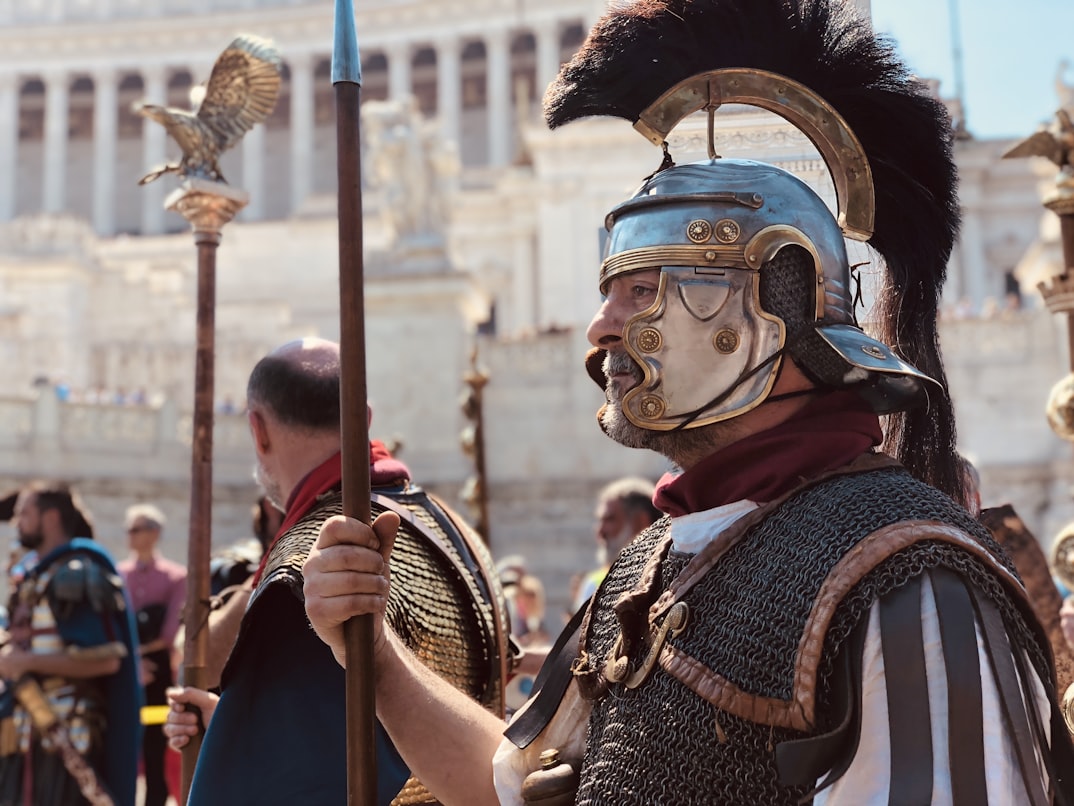As I write this, America is newly embroiled in a national discourse over political violence. If you are reading this in the year 2025, you know that the killing of Charlie Kirk was the flashpoint for this dialogue. You also know that the tone isn’t good, and there is still much vitriol and finger-pointing dominating the discussion.
Reviewing the comments on news articles (with caution and in moderation), I’ve seen a wide range of responses. Mixed in with appropriate expressions of grief over the loss of human life and condemnation of the violence that took a life, it isn’t hard to find equally inappropriate reactions: celebration, victim-blaming, and calls for retribution.
As Christians, we shouldn’t be surprised to see broken thinking in a broken world. The works of the flesh include enmity, strife, and fits of rage (Galatians 5:19-20). As Spirit-filled followers of Jesus, we must guard against letting such worldly thinking infiltrate our own thoughts and discourse.
Examining Our Thoughts
Paul admonishes us to be transformed by the renewing of our minds. (Romans 12:2) Similarly, he reminds us that spiritual warfare starts with pulling down strongholds and bringing into captivity every thought to the obedience of Christ. (2 Corinthians 10:3-5) Before we speak, before we act, we must surrender our minds to Christ and seek his mind.
In 21st-century America, our political ideals can (and often do) become strongholds in our minds. It is God’s power—not human reasoning—that tears down the strongholds and frees our minds so that the mind of Christ may fill the vacancy. If we’re being honest with ourselves, we admit that this is not easy. And because we are imperfect vessels in a fallen world, we will never get it completely right on this side of eternity.
Also, if we’re being honest with ourselves, we admit that the whole process makes us uncomfortable, because Jesus challenges thoughts and ideas that we cling to for various reasons—whether for security, identity, pride, or even fear. This is true of all of us—left, right, and center alike.
Some of my Christian friends (of all political flavors) might suggest that now is different. The stakes are too high. We are on the fast track to unprecedented political division.
Now is not different.
Now is not unprecedented.
Now is the time to read the gospel through a first-century lens and meet Jesus in his time and place in history.
Setting the Scene
Our Triune God is eternal. When God put his plan in motion to rescue humanity from sin and death, He could have chosen any time and place for Jesus to take on flesh and dwell among us.
He chose a violent political tinderbox.
Rome had little patience for rebellion. When pockets of resistance formed, soldiers were dispatched to halt uprisings before they grew out of control. Taxation limited the resources of would-be insurgents. Crosses were deployed publicly—and in great numbers—to deter further rebellion.
Still, some passionate Jews would not be deterred. In the time of the New Testament, they were known as the Zealots. To some, they were freedom fighters; to others, they were thugs. But what defined them, objectively, was their willingness to take up arms and carry out violence against Romans and their allies.
Jesus Enters the Scene
Jesus launched his ministry in Galilee, the most volatile region among the Roman-occupied Jewish lands. Then, instead of choosing a side, he chose a representative of both extremes to join his core group of twelve disciples.
You know them as Simon the Zealot and Matthew the tax collector.
How could Jesus choose these two and make them get along? This question prompted me to write my first novel, Coin and Dagger, which features Matthew and Simon as dual protagonists. Scripture doesn’t tell us how these two men who started as obvious enemies ultimately became friends, but it does affirm that they did:
And when they had entered, they went up to the upper room, where they were staying, Peter and John and James and Andrew, Philip and Thomas, Bartholomew and Matthew, James the son of Alphaeus and Simon the Zealot and Judas the son of James. All these with one accord were devoting themselves to prayer, together with the women and Mary the mother of Jesus, and his brothers. – Acts 1:13-14 (ESV)
Exploring their lives through story was a challenging exercise. The gospel narrative records only one instance of Matthew’s behavior, and is completely silent on Simon’s words and actions. For this reason, much of Coin and Dagger takes place in the white spaces between the passages of the gospel. But where the story intersects with the gospel, it stays true to the text.
And the text tells us some fascinating things.
- Jesus announced a ministry of comforting the poor and freeing the oppressed (Luke 4:16-21) while also healing a centurion’s servant. (Luke 7:1-10)
- Jesus was critical of Rome’s friend Herod (Luke 13:32) and the nationalist-leaning Pharisees. (Matthew 23:1-36)
- Jesus somehow caused the Herodians and the Pharisees to unite against him as their common enemy. (Mark 3:6)
- Despite his criticism of leaders, Jesus saw the people as sheep without a shepherd. (Matthew 9:36)
- Jesus refused to act according to the way of the insurgents (Luke 22:49-51), until he took the place of Barabbas on the cross. (Luke 23:18-19)
To summarize, Jesus loved people on all sides of his socio-political environment. He loved so radically that his love led him to submit to death on a cross. (Philippians 2:5-8)
Jesus also upset people on all sides.
A church that looks like Jesus will ultimately do likewise—loving recklessly while being hard pressed on every side.
Reexamining Modern Thinking
As you contemplate Romans and Jews, Zealots and tax collectors, Matthew and Simon, do you wonder, “Who are the conservatives and who are the liberals?” If so, I invite you to put away such a fleeting question. Recall Joshua’s conversation with the Angel of the Lord:
Now when Joshua was near Jericho, he looked up and saw a man standing in front of him with a drawn sword in his hand. Joshua went up to him and asked, “Are you for us or for our enemies?”
“Neither,” he replied, “but as commander of the army of the Lord I have now come.” Then Joshua fell facedown to the ground in reverence, and asked him, “What message does my Lord have for his servant?” – Joshua 5:13-14 (NIV)
This interaction reminds us that God transcends our temporal labels. His truth and His purposes precede and supersede our divisions, platforms, priorities, and agendas. He alone is steadfast, eternal, and unchanging.
Our entire political spectrum is shifting sand, and the labels we use to define different points on that line are moving targets. They are fleeting, malleable concepts whose definitions change with each new generation. This is why you won’t find “conservatives” and “liberals” in the pages of scripture.
Seeing Jesus First
What you will find, though, is that following Jesus cannot be about standing on the perfect spot on our left-right continuum (because the line will move). Instead, Jesus invites us to align our thinking—even our lives—along a different axis entirely. That is the axis where heaven and earth meet.
This is the steadfast, eternal, and unchanging tether upon which Jesus calls us to align with him. He is the enthroned and eternal King who holds one end of the line. The other end, he brought from heaven to earth and anchored it with a bloodstained cross.
He invites us, as his body, to occupy this line as his kingdom people, living as the ambassadors of heaven here on earth. Will our love look strange to the world? Will our ideological allies question us? Will we feel pressed on all sides?
If we’re doing kingdom life correctly, yes, yes, and yes.
We didn’t get to choose the setting and the moment into which we were born. Nevertheless, here we are, and here is the choice before us. When we are caught up between Pilate and Barabbas, are we willing to choose Jesus?



